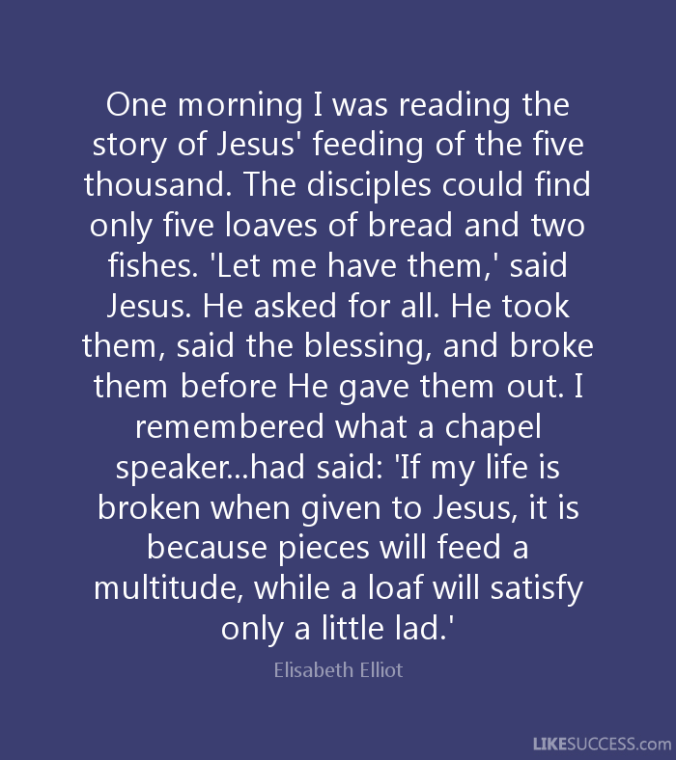“It would seem that Our Lord finds our desires not too strong, but too weak. We are half-hearted creatures, fooling about with drink and sex and ambition when infinite joy is offered us, like an ignorant child who wants to go on making mud pies in a slum because he cannot imagine what is meant by the offer of a holiday at the sea. We are far too easily pleased.” (C. S. Lewis, The Weight of Glory and Other Addresses).
Tonight at Kairos, Chris Brooks asked the age-old question, “Does God really want us to be happy?”
I admit that for years the answer has always been a knee-jerk version of “No, God doesn’t want us to be happy. He wants us to be holy.”
Maybe happiness and holiness aren’t mutually exclusive. Maybe holiness doesn’t have to mean a dour demeanor and grumpy face. Perhaps there is happiness in enjoying God and His good gifts.
The problem isn’t in seeking happiness but that we seek for it in the wrong places. We seek to find fulfillment and joy in the created rather than in the Creator, and in the gifts rather than in the Giver.
It’s not that we desire too much but that we desire too little. We can glorify and make an idol out of just about anything (or anyone). Careers, possessions, relationships, children, morality, and even worship (more accurately, the worship of worship and the adrenaline rush it brings).
We can’t seek happiness and joy outside of God because it doesn’t really exist. At least not true happiness and joy. We often end up over-stimulated and under-satisfied. Nothing apart from God brings a lasting gratification.
That’s why there’s always the push to do more, buy more, consume more, and be more. It will never be enough.
God is enough and in Him are joys and pleasures and happiness that will never end.
